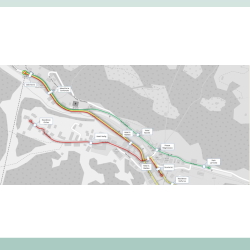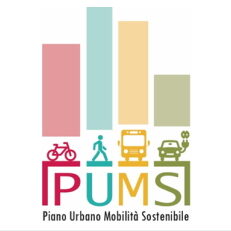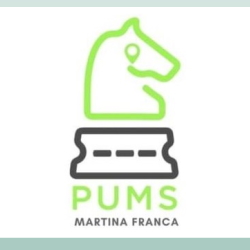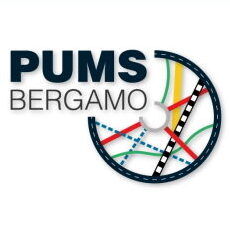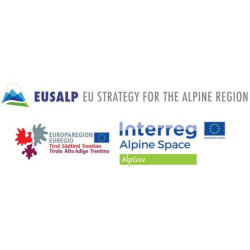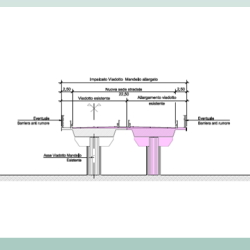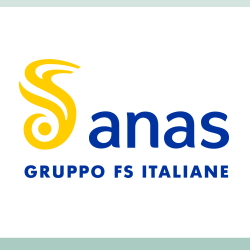- All
- African projects
- assessment
- assessment selected projects
- Assessment selected projects 2
- Assessment selected projects 3
- Assessment selected projects 4
- ASTRA
- Cost Benefit Analysis
- Electric mobility and ITS
- MOMOS
- planning
- planning selected projects
- planning selected projects 2
- planning selected projects 3
- planning selected projects 4
- planning selected projects 5
- projects
- Railways projects
- research
- research selected projects
- research selected projects 2
- research selected projects 3
- studies
- studies selected projects 1
- studies selected projects 2
- studies selected projects 3
- studies selected projects 4
- studies selected projects 5
- TRTingegneria
- TRUST
- urban mobility
- Study for the definition of sustainable regeneration strategies in Stephenson intermodal urban node (Milano) TRT has lied down the transport strategy supporting the sustainable urban regeneration of Stephenson area coordinate with the surrounding developing district of Expo area. The study encompasses a deep analysis of accessibility and potential impact at socio-economic and demographic scale induced by the introduction of a new rail passenger service into Stephenson area. The strategy include the redefinition of intermodal urban role for Stephenson area by introducing new railway connection and station within the area and the related road connections for increasing the accessibility to the area. This include: Interchange parking area with slot dimensioning Bus line path and stops including planning of new service lines Pedestrian and cycling connection
- Santa Caterina Valfurva – Smart Territory – Autofree The assistance for the implementation of the Santa Caterina Smart Territory strategy is focused on the Santa Caterina car-free project. The activities, which take place in collaboration with Ambiente Italia (leader) and Polinomia, concern four points: Parking policy; Definition of practical interventions on urban furniture; Ski Bus service provision; Strategies for implementing interventions to limit vehicles access to the road to Forni, second largest regional alpine glacier. TRT was in charge of putting in place solutions for vehicle traffic reduction in the tourist resort of Santa Caterina, through the design of public transport services that guarantee access to resident and tourists. Moreover, TRT contributed to the identification of possible solutions for the progressive closure to traffic of the Forni’s road (from Santa Caterina to Forni Glacier), through measures of regulation and/or pricing. Both strategies aim to reduce the traffic that crosses the center of Santa Caterina, increasing the environmental quality and the tourist attractiveness of the town.
- Sustainable Urban Mobility Plan (SUMP) and the Urban Traffic Plan (PUT) of the Municipality of Piacenza, complemented/integrated by the Strategic Environmental Assessment (SEA) The Municipality of Piacenza (102,000 inhabitants approx.) has commissioned TRT Trasporti e Territorio, through a public tender, to draft the Sustainable Urban Mobility Plan and the Urban Transport Plan of the city of Piacenza. The drafting of the SUMP of Piacenza was developed in accordance with the ELTIS’ methodology and, at the national level, with the guidelines issued by the Ministry of Infrastructure and Transport (Decree August 4, 2017). The SUMP was launched in October 2018 and it consists of the following activities: updating of the local mobility and planning context; evaluation of the current scenario (diagnostic framework and SWOT analysis) and definition of general and specific objectives and indicators; elaboration of the Plan and quantification of resources, including the identification of alternative scenarios (RS and SP), the ex-ante evaluation (technical, economic and environmental), the quantification of financial resources and the definition of the monitoring system; adoption and approval of the plan. In parallel, a traffic simulation tool was developed for technical, environmental and economic assessment. A crucial element of the Plan’s drafting process was the participatory process, which included: i) a survey aimed at those who live, work and study in Piacenza, with the dual purpose to define the transport demand and to know the needs of those who move daily across the city; ii) thematic and territorial focus groups; iii) informal evenings to explain the Plan to residents; iv) a final conference. The Plan was subjected to Strategic Environmental Assessment, adopted with the Municipal Council Resolution n.2020 / 20 – of 24/01/2020 and approved by the City Council Resolution n.57 of 28/12/2020. Tavola SP_05, Scenario di Piano – Ciclabilità For more information Documents available on comune.piacenza.it (only available in italian) “Sustainable Mobility Planning in Piacenza, Italy”. Case study published on Eltis Platform Related projects Monitoring Report of the Sustainable Urban Mobility Plan of the Municipality of Piacenza [tw_button icon=”” link=”https://www.trt.it/archivio-progetti/” size=”small” rounded=”false” style=”flat” hover=”default” color=”#223468″ target=”_self”]Projects[/tw_button]
- Sustainable Urban Mobility Plan (SUMP) of Martina Franca The Municipal Administration of Martina Franca, with its 49,000 residents, has shown particular interest to the issue of sustainable mobility and has decided to undertake the process of adopting a SUMP despite the fact that, according the the Italian Ministry of Transport guidelines (Decree 4 August 2017), they are compulsory only for municipalities with a population greater than 100,000 inhabitants. Launched in November 2018, the study provided: The setting up of data and documents relating to initiatives and going-on projects developed by the Municipality; The definition of objectives, strategies and targets; The selection – in agreement with the Municipality – of the measures of the SUMP Proposal together with the identification of the main indicators for evaluation and monitoring; The qualitative-quantitative assessment of environmental, social and economic sustainability of the SUMP measures through the application of the strategic model MOMOS (Model for Sustainable MObility) tool developed by TRT. A founding element of the Plan preparation process was the participatory process, which included an online survey aimed at residents and city users (with the dual purpose of characterizing the demand for mobility and knowing the needs and requests of those who moves daily to the city) and participation of TRT staff in Municipal Assemblies and with citizenship. [tw_button icon=”” link=”https://www.trt.it/archivio-progetti/” size=”small” rounded=”false” style=”flat” hover=”default” color=”#223468″ target=”_self”]Projects[/tw_button]
- Sustainable Urban Mobility Plan (SUMP) of Bergamo (Italy) and related SEA With 120,000 residents, Bergamo is the fourth largest city in Lombardy. According to the origin-destination survey carried out by Regione Lombardia in 2014, 366,000 journeys daily affect the municipal territory. The drafting of the SUMP of Bergamo guaranteed consistency with the methodology suggested by the European Commission (www.eltis.org) and with the guidelines issued by the Italian Ministry of Transports (Decree 4 August 2017). Started in July 2018, the work has been organised in four phases:: background analysis of the mobility-related framework and its environmental, social and economic impact in Bergamo; evaluation of the current scenario (diagnostic framework and SWOT analysis) and subsequent definition of the general and specific objectives system as well as measurement indicators; elaboration of the SUMP, including the identification of alternative scenarios, the selection of the related policies and measures, the preparation of a monitoring plan for the ex post evaluation of the plan; acceptance and approval process. The plan has been prepared with the support of a traffic simulation model thus allowing for a detailed technical, environmental and economic evaluation. A tool for strategic evaluation (MOMOS, entirely developed by TRT) has been also used. A fundamental element of the SUMP has been the participatory process, which has included a survey on mobility habits addressed to those who live, work and study in Bergamo and four thematic focus groups. The sustainability of the SUMP has been supported by a Strategic Environmental Assessment (SEA) and an assessment of the effects of the Plan for the naturalistic Site of Community Importance (SCI) named «Boschi dell’Astino e dell’Allegrezza». The SUMP of Bergamo has been accepted by the City Council on 16/05/2019 and eventually approved om 05/07/2022. For more information Documents available on comune.bergamo.it (only available in italian) “Sustainable Urban Mobility Plan for Bergamo and its functional area”. Case study published on Eltis Platform
- Overview of existing pricing components that influence the competitiveness between road and rail freight transport The Alpine regions are particularly sensitive to negative environmental and social impacts caused by the road traffic flow of freight and passenger transport through the Alps. To tackle this challenge, the harmonisation and implementation of modal shift policies is of utmost relevance. EUSALP Action Group 4 on Mobility (AG4) has commissioned to TRT Trasporti e Territorio a study to support its strategy in designing a proper mix of modal shift policies. TRT provided an overall analysis of existing policy-induced pricing components affecting the competitiveness between road and rail freight transport in and through the Alps. The objectives of the study were: To collect detailed information on policy-induced pricing components that influence road and rail transport cost; To develop a comparative illustration of them for supporting political discussion and communication; To provide preliminary recommendations to improve the instrument mix for balancing the transport modal split in the Alpine Region. [tw_button icon=”” link=”https://www.trt.it/archivio-progetti/” size=”small” rounded=”false” style=”flat” hover=”default” color=”#223468″ target=”_self”]Projects[/tw_button]
- Isola della Scala Intermodal Terminal– Feasibility study TRT has carried out an analysis to assess the feasibility for implementing an intermodal terminal in the Municipality if Isola della Scala. This has included the definition of the requirements for both rail and road logistics areas as well as the actual mode of operation of the terminal area. In particular, the assessment has included: The road accessibility to the terminal areas within the surrounding road network The rail accessibility to the terminal areas by the existing railway line aside the terminal and the operation mode for manoeuvring the rolling stocks for routing them on the network An estimation of both logistics and storage areas based on daily terminal operations of intermodal transport units The study included the impact assessment of terminal operations on road traffic, in particularly it has been considered a daily flow of 30 couple of train of 750m (mainly made by semitrailer and swap bodies) An estimation of the investments costs to set up the intermodal terminal, including the related costs for adapting the existing road and rail network, has also been made
- Technical and economic feasibilty assessment. Upgrading measures for existing road and new road sections for the IV Stretch From Vaglio industrial area to the junction with S.P. Oppido S.S. 96 The project is part of the broader plan for the Salerno – Potenza – Bari Route, which was included in the First Program of Strategic Infrastructures approved by the Interministerial Committee for Economic Planning (CIPE) with the resolution n°121/2001. More in detail the object of the study is a portion of the IV Stretch “Zona industriale Vaglio – SS96 BIS – Inizio Variante di Gravina”, that is supposed to be 20 km long with a C1 section, as classified by the standards imposed by the D.M. 5/11/2001, and includes: A newly built stretch from S.S.407 «Basentana» to SP123, North of Tolve, in which a tunnel is planned Upgrading works for S.P.123 from North of Tolve to the junction with S.S.96 bis, near Oppido Lucano. The objective of the Technical Economic Feasibility Study is to find a design solution compatible with the financial resources allocated in the tender documents. For this assessment, TRT Trasporti e Territorio, in collaboration with GPI Ingegneria, is in charge for developing a traffic study, with the support of PTV Visum software, and a cost-benefit analysis. The modelling activities include: Current state network build-up Model parameters updating O/D demand matrices estimation and correction through mathematical correction procedure Validation of assigned vehicle flows with up-to-date traffic counts; Development of project scenarios to assess and compare their performances.
- COG-LO – COGnitive Logistics Operations through secure, dynamic and ad-hoc collaborative networks The main goal of COG-LO, an innovative project on ICT logistics solutions funded by the European Programme Horizon 2020, was to create the framework and tools to implement cognitive and collaborative ICT solutions on future logistics processes, embracing many contexts and environments. By exploiting COG-LO, it was possible to achieve several benefits, such as: increase the load factor, reduce the cross-border parcel delivery costs, reduce the ratio between distance covered by the logistic vehicles and the number of pickups, implement quick adaptive response management to dynamic customer requirements. The project outcomes were validated in three different pilots, covering multi-modality, inter-country deliveries and urban logistics operations. The international partnership involved 14 public and private actors working both in transportation and ICT fields across eight European countries. TRT leaded WP2 (Cognitive logistics framework), capitalizing on its vast experience on freight transport and logistics research projects. It also brought its long experience in the field of quantitative analysis, strategic planning, KPIs assessment by supporting the technological requirements analysis in one of the pilots developed along the project (the EKOL case on intra-terminal operations and multimodality solutions). [tw_button icon=”” link=”https://www.trt.it/archivio-progetti/” size=”small” rounded=”false” style=”flat” hover=”default” color=”#223468″ target=”_self”]Projects[/tw_button]


